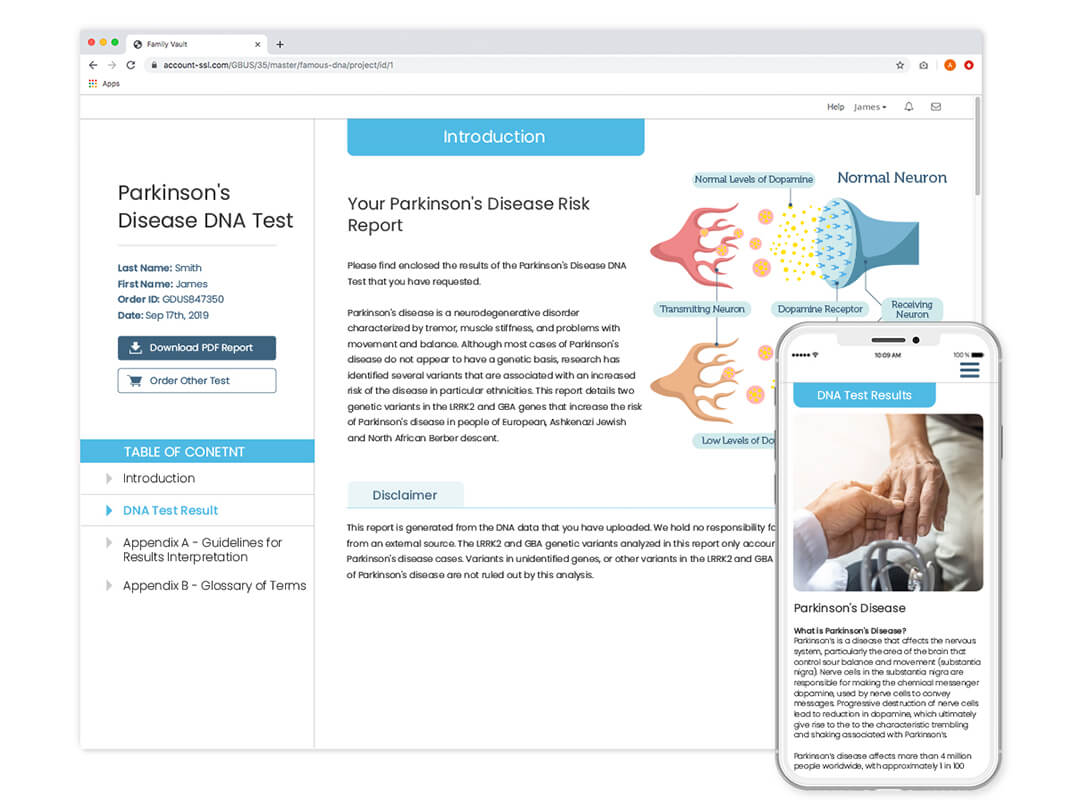Parkinson’s Disease DNA Test
Does late-onset Parkinson’s disease run in your family? Find out if you are at increased risk with this DNA Test.
- Detects LRRK2 and GBA variants linked to late-onset Parkinson’s disease
- Having an affected first degree family member increases the risk of Parkinson’s
- 100% private and confidential online results
Already have DNA markers? Sign in and upload your data to view results.
Need to take the DNA Test? Order our easy-to-use swab kit.





